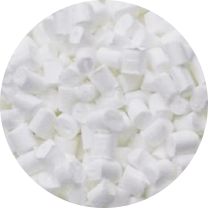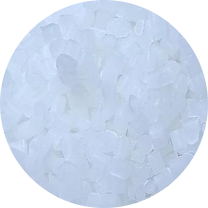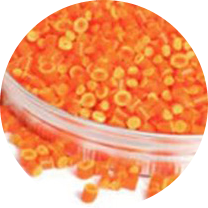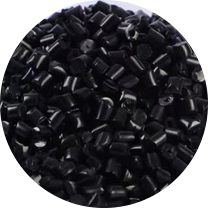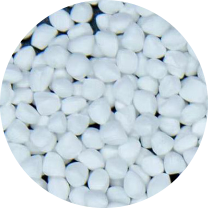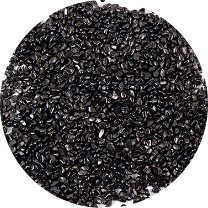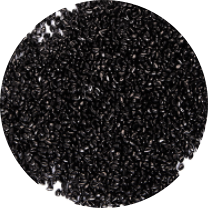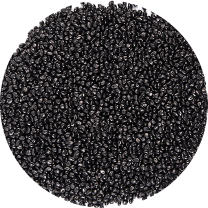PEPP Granular Plastic Polyethylene Functional Open Masterbatch
PEPP granular plastic polyethylene functional open masterbatch is used to improve various functional properties of polyethylene (PE) materials. PEPP granular plastic polyethylene functional open masterbatch can provide multiple functions such as anti-aging, antibacterial, antistatic, enhanced hardness, improved toughness, and improved wear resistance. PEPP granular plastic polyethylene functional open masterbatch is easy to add. It can enter the processing equipment together with the polyethylene raw materials and be evenly dispersed in the base material through melting and mixing. PEPP granular plastic polyethylene functional open masterbatch is used to manufacture various polyethylene products, such as packaging materials, pipes, wires and cables, automobile parts, etc.
Description
Open masterbatch is composed of a variety of efficient special additives. It is processed by special technology. It can be used for the processing of polyolefin (PE.PP) plastics, which can effectively improve the opening (that is, anti-adhesion) performance of the product and the lubrication performance of the processing process.
The product and polyolefin resin in the proportion of 1.5% ~ 3% (specific according to the product's opening performance requirements) mixed evenly, and then you can carry out normal processing.
PEPP Granular Plastic Polyethylene Functional Open Masterbatch is a multifunctional polyethylene (PE) masterbatch designed to improve the processing performance and functionality of polyethylene materials. By adding special functional additives, this product can significantly improve the antistatic, antioxidant, wear resistance and other properties of polyethylene products, and is widely used in packaging, agriculture, industrial products and other fields.
| Multi-functionality | Provides anti-static, anti-oxidation, wear resistance, and other functional properties to meet diverse application needs. |
| Excellent Processability | Compatible with polyethylene resin, offers good fluidity, and is suitable for various processing techniques such as blow molding, injection molding, and extrusion. |
| High Dispersibility | Functional additives are evenly dispersed, ensuring stable product performance. |
| Eco-friendly and Safe | Complies with RoHS, REACH, and other environmental standards, making it non-toxic and safe for food contact and medical applications. |
| Color Options | Available in transparent or customized colors to meet specific customer requirements. |
Application scenarios
Packaging materials
Used in the production of food packaging films, shopping bags, industrial packaging bags, etc.
Provide antistatic, antioxidant and other functions to extend the service life of packaging materials.
Agricultural films
Used in the production of agricultural films such as ground films and greenhouse films.
Improve the wear resistance and anti-aging properties of the film to adapt to complex outdoor environments.
Industrial products
Used in the production of industrial products such as pipes, containers, and automotive parts.
Enhance the mechanical properties and durability of the products.
Daily consumer goods
Used in the production of household goods, toys, plastic products, etc.
Provide safe and environmentally friendly material options to meet consumer needs.
| Appearance | Granular | Uniform granules, free of impurities. |
| Carrier Resin | Polyethylene (PE) | Excellent compatibility with PE resin. |
| Functional Additive Content | 1%-10% | Adjustable based on functional requirements. |
| Melt Flow Index (MFI) | 2-20 g/10min | Suitable for blow molding, injection molding, extrusion, and other processing techniques. |
| Density | 0.92-0.96 g/cm³ | Close to the density of PE resin, ensuring easy dispersion. |
| Heat Resistance | ≤ 120°C | Suitable for conventional processing temperatures. |
| Anti-static Performance | Surface resistivity ≤ 10^12 Ω/sq | Effectively prevents static accumulation. |
| Anti-oxidation Performance | Complies with ASTM D3895 | Extends the service life of products. |
| Environmental Compliance | RoHS, REACH compliant | Non-toxic and safe for food contact and medical applications. |
| Packaging | 25kg/bag | Standard packaging, customizable based on customer requirements. |
Product advantages
Versatility: One product meets multiple functional requirements and reduces customer procurement and management costs.
Improve product performance: significantly improve the antistatic, anti-oxidation and wear resistance of polyethylene products.
Wide applicability: suitable for a variety of processing technologies such as film blowing, injection molding, extrusion, etc.
Environmental protection and safety: in line with international environmental standards, suitable for food contact and medical fields.
Customized service: provide customized products with different functions and colors according to customer needs.
Get in Touch With Us
Who Are We?
Changzhou Runyi New Material Technology Co., Ltd.
News
-
The Science of Black: Optimizing Polymer Performa...
The Engineering Role of Carbon Black Masterbatch In the polymer industry, the carbon black masterbatch is far more ...
READ MORE -
Material Science of Pigmentation: Achieving Carri...
The selection of a Carbon Black Masterbatch is a technical exercise that extends far beyond color matching. For B2B...
READ MORE -
Engineered Longevity: Carbon Black Masterbatch UV...
In applications demanding extended outdoor performance—such as pipes, geosynthetics, and agricultural films—the sta...
READ MORE -
Precision Pigmentation: Mastering the FPV and Dis...
For processors involved in manufacturing thin-gauge films, fine fibers, or sophisticated injection molded component...
READ MORE -
MFR Matching Principle: Optimizing White Masterba...
In the realm of polymer processing, achieving consistent color dispersion and flawless product quality is a fundame...
READ MORE


 English
English 中文简体
中文简体 한국어
한국어 عربى
عربى





